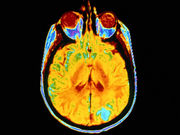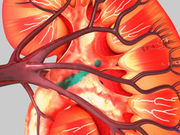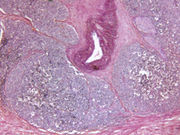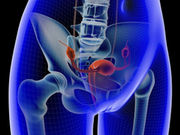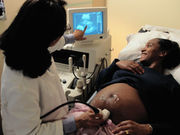Home 2015
Archives
Nonoperative Management Feasible for Pediatric Appendicitis
Less morbidity and lower costs for those choosing nonoperative management versus surgery
Childhood Depression Tied to Cortical Gray Matter Development
Alterations in gray matter volume loss, thinning in association with major depressive disorder
Symptoms Frequently Reported by Ebola Virus Survivors
Eight survivors report varied symptoms, including ocular, psychological, or cognitive symptoms
Prevalence of Diabetes, Diabetic Nephropathy Up in U.S. Children
Increase in prevalence from 2002-2013, with highest prevalence among those aged 12 to <18 years
Surgery May Beat Radiotherapy for Localized Prostate Cancer
Analysis of 19 studies suggests surgery has an edge in survival
Longer Follow-Up Needed to Evaluate Ovarian CA Screening
Significant reduction in mortality with multimodal screening when prevalent cases excluded
Antineoplastic Agent Obscures Diagnosis of Fungal Meningitis
Cerebrospinal fluid culture results were negative following receipt of capecitabine
Lack of Sleep Affects Mood, Cognition in Anesthesiologists
Findings suggest sleep deprivation impacts patient safety and quality of care in peds anesthesia
Ascorbic Acid Patch Reduces Wrinkles Due to Photoaging
Anti-wrinkle effect for application of AA-loaded dissolving microneedle patch versus blank DMN patch
Ultrasound Can Read Weight of Fetuses With FGR in Obese Moms
Findings show accurate estimated fetal weight for women in all body mass index subcategories



